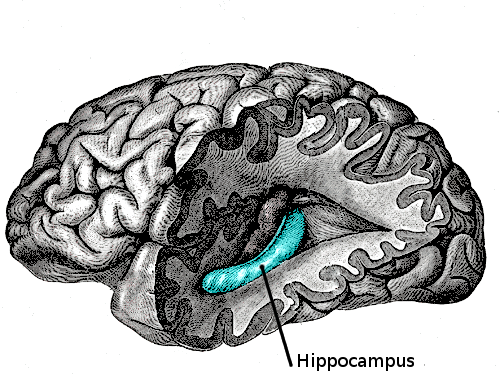
May 4, 2009
People who have lost brain cells in the hippocampus area of the brain are more likely to develop dementia, researchers report. The findings add to a growing body of evidence that shrinkage of the brain, particularly in the hippocampal area, may be an early sign of Alzheimer’s disease, occurring years before obvious memory loss and other symptoms appear.
The study, from researchers in the Netherlands, appeared in Neurology, the medical journal of the American Academy of Neurology. It involved 64 people with Alzheimer’s disease, 44 people with mild cognitive impairment, a less severe form of memory loss that sometimes precedes Alzheimer’s disease, and 34 people with no memory or thinking problems.
The researchers performed MRI brain scans on all of the participants at the beginning of the study, and again an average of a year and a half later. During that time, 23 of the people with mild cognitive impairment had developed Alzheimer’s disease, along with three of the healthy participants.
Researchers measured the volume of the whole brain as well as the hippocampus area, which is affected by Alzheimer’s disease, at the beginning and end of the study, and calculated the rate of shrinkage in the brain over that time.
For the people who did not have dementia at the beginning of the study, those with smaller hippocampal volumes and higher rates of shrinkage were two to four times as likely to develop dementia as those with larger volumes and a slower rate of brain cell wasting, or atrophy.
“This finding seems to reflect that at the stage of mild cognitive impairment, considerable atrophy has already occurred in the hippocampus,” said study author Wouter Henneman, M.D., of VU University Medical Center in Amsterdam, The Netherlands. “In people who already have Alzheimer’s disease, the loss of nerve cells is more widespread throughout the brain.”
The seahorse-shaped hippocampus, from the Greek for “seahorse,” is widely recognized as a seat of memory. Researchers have been focusing on this part of the brain in the search for clues to Alzheimer’s disease.
At the McKnight Brain Institute at the University of Florida, researchers are looking into a protein “switch” that allows some cells in the hippocampus to live, while those nearby dies. The protein hinders some of the natural processes that allow cells to die, thereby ensuring the cell’s survival.
“Possibly, we have found a target that could be manipulated with drugs so that these brain cells can be saved from threats,” said Tomas C. Foster, a professor of neuroscience at the university.
A better understanding of how nerve cells in the hippocampus deteriorate may lead to new treatments for diseases like Alzheimer’s, which can cause disorientation and other problems with thought and memory. Such problems have been strongly linked to deficits in the hippocampus.
By www.ALZinfo.org, The Alzheimer’s Information Site. Reviewed by William J. Netzer, Ph.D., Fisher Center for Alzheimer’s Research Foundation at The Rockefeller University.
Sources:
Neurology, March 16, 2009. American Academy of Neurology.











